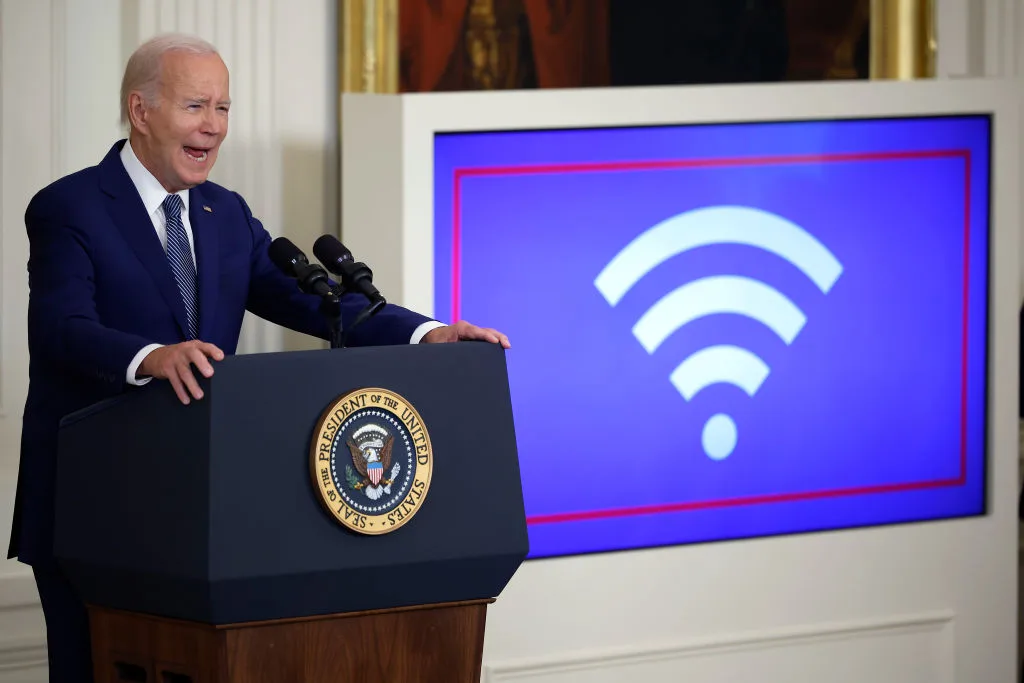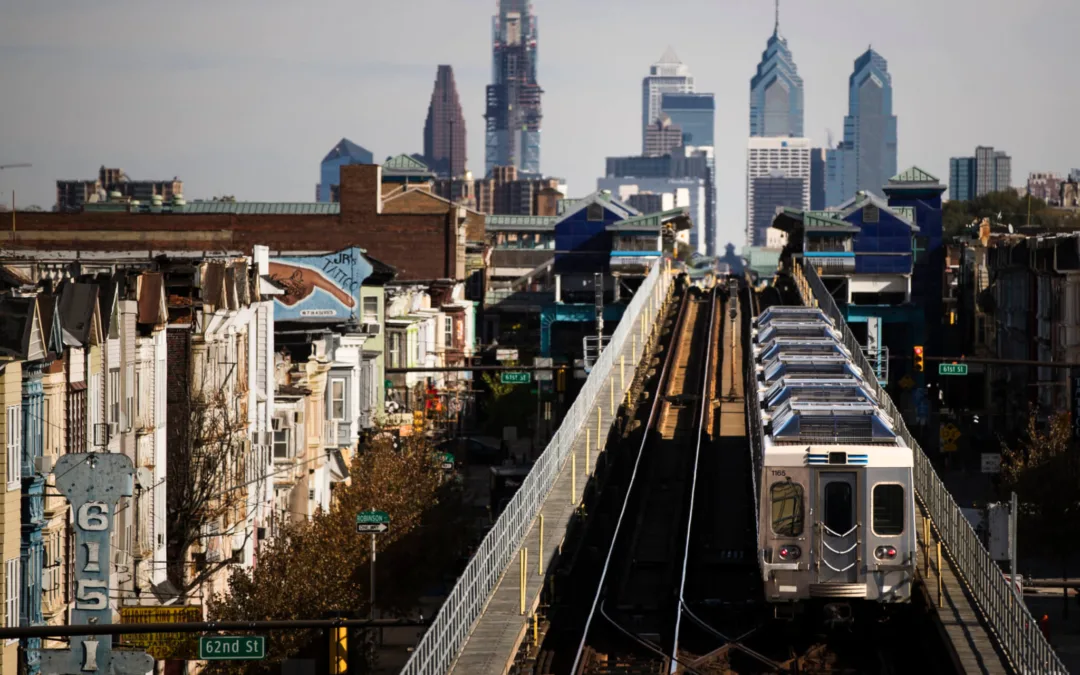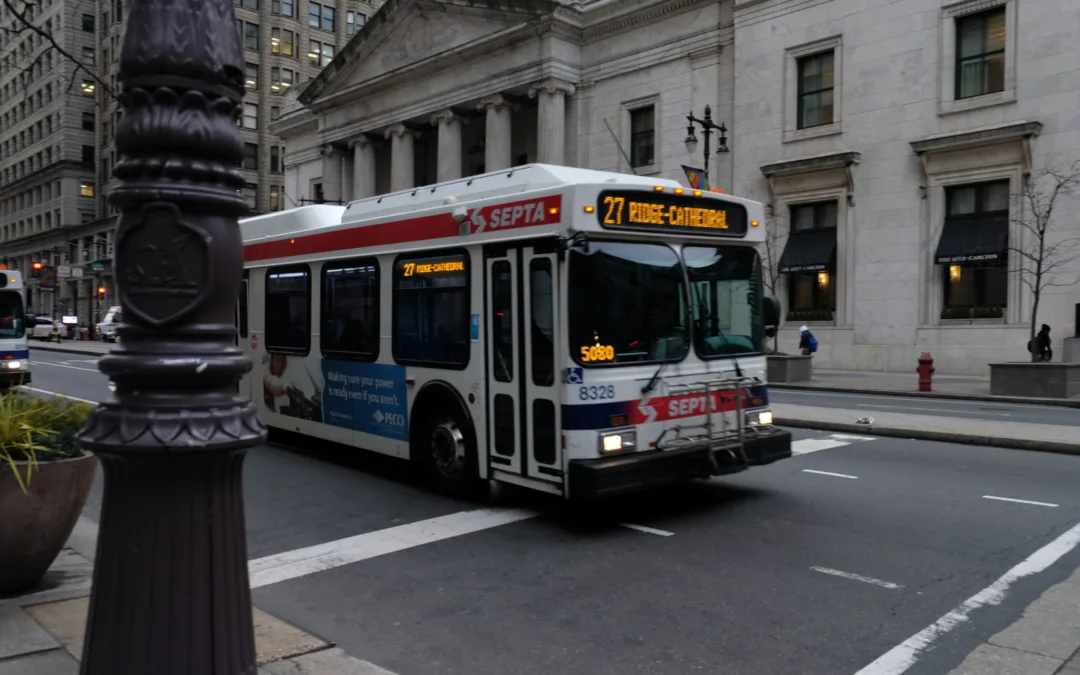
WASHINGTON, DC - JUNE 26: U.S. President Joe Biden speaks as he announces a $42 billion investment in high-speed internet infrastructure during an event in the East Room of the White House on June 26, 2023 in Washington, DC. The investment is part of the 2021 bipartisan infrastructure package and part of the administration's goal to connect all Americans to high-speed broadband by 2030. (Photo by Chip Somodevilla/Getty Images)
Time is running out for the Affordable Connectivity Program, which provides low-cost high speed internet access for over 736,000 Pennsylvania households. The program is set to expire at the end of April if House Republicans don’t act.
Democratic congressional lawmakers from Pennsylvania are sounding the alarm on the future of the Affordable Connectivity Program (ACP), which provides low-cost, high-speed internet access for millions of Americans.
“This is a critically important program that we are here to discuss. It’s helped 22 million Americans save on their monthly internet bills,” Congresswoman Susan Wild (D-Lehigh) told reporters during a press conference on Wednesday.
“We are living in a digital age. Having internet access is no longer a luxury. It is as important as electricity and plumbing.”
Over 736,000 Pennsylvania households save between $30 to $75 every month on their internet bills thanks to the ACP, and according to the Biden administration, many Pennsylvania households’ internet bills are fully covered by the ACP due to the administration working with internet providers.
“If Republicans allow this program to expire, that would be like imposing a $55 million tax increase on my constituents.” Congressman Dwight Evans said. “That’s why a monthly discount of $30 or $75 makes a real difference for the many families in my district.”
The ACP was created under the Bipartisan Infrastructure Law and provided $14.2 billion in federal funding to modify and extend the Emergency Broadband Benefit Program and create the current program, according to the Federal Communications Commission (FCC)
President Joe Biden has been working with Republicans since the fall to extend the program, but House Resolution 6929, which would extend the program by giving it $7 billion, has been sitting dormant in the US House Appropriations Committee since January.
House Democrats launched a discharge petition on Monday to try and force Republicans to schedule a vote. The bill has 223 cosponsors with 202 Democrats and 21 Republicans supporting it.
Using a discharge petition to force a vote on a bill is an extremely labor intensive process. A bill has to sit in committee for 30 legislative days—or days where the House has convened—in order to be eligible for a discharge petition, and House members have to obtain a simple majority in order to start the process.
“Discharge petitions are not the easiest thing to get done or to get things moving on,”Wild said. “But I will say in this Congress, unfortunately it seems to be something that we’re going to end up relying on more and more often.”
Support Our Cause
Thank you for taking the time to read our work. Before you go, we hope you'll consider supporting our values-driven journalism, which has always strived to make clear what's really at stake for Pennsylvanians and our future.
Since day one, our goal here at The Keystone has always been to empower people across the commonwealth with fact-based news and information. We believe that when people are armed with knowledge about what's happening in their local, state, and federal governments—including who is working on their behalf and who is actively trying to block efforts aimed at improving the daily lives of Pennsylvania families—they will be inspired to become civically engaged.


We asked, you answered: Where do you stand on funding for public transit in Pennsylvania?
Around 1 million Pennsylvanians rely on mass transit daily in urban, suburban, and rural regions. In the Philadelphia region, where SEPTA serves...

Pennsylvania House makes last-ditch effort to stave off cuts at Philadelphia’s public transit agency
The bill—which includes funding for highways, too—increases aid for transit agency operations by $292 million, or about 25% more, with the lion’s...

Pa. House Democrats push a transit funding bill—again—as SEPTA warns of coming cuts
An estimated one million Pennsylvanians rely on mass transit each day in urban, suburban and rural regions. On Wednesday, House Democrats advanced...

What’s at stake over proposed increase in mass transit funding in Pa.?
“If they cut the 32 bus especially, there goes my job. There goes my place to live. It’d put my freedom on the line.” Andrew Long has lived in South...

Energy and tech companies said they’re investing $90B in Pa. What will they build?
A score of energy, tech and capital investment companies announced their commitments nearly a week ago to more than $93 billion worth of projects to...





